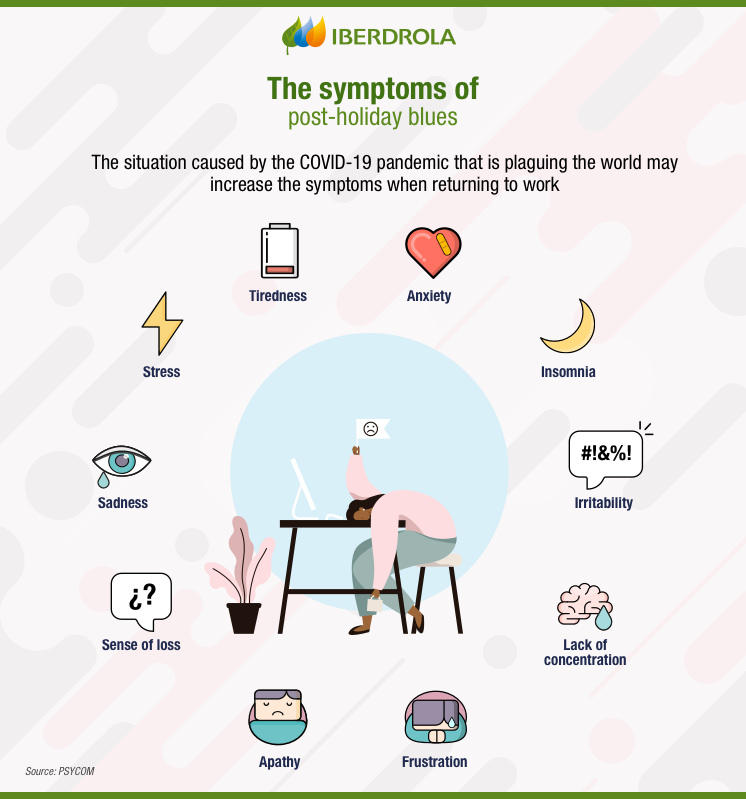Back to work tips
How to cope with the return to work after the holidays?
Returning to work after a holiday is never easy, but this year, it can be even more of an uphill struggle. Here are some tips to avoid the post-holiday blues whether you are remote working or returning to the office.

Swapping the sound of waves for the sound of horns. Swapping your swimsuit for a shirt. Swapping relaxation for urgency. But above all, setting the alarm clock again. These clues probably give you an idea of what we are going to talk about, especially if you are living through it in the first person. Yes, we are talking about the hard return to work after the holidays.
Back to work after vacation
The return to work affects our state of mind to a greater or lesser extent. Therefore, proper change management is essential to making it as trauma-free as possible.
In a context full of uncertainty resilience can become your best ally. Good mental hygiene is also fundamental to maintaining our psychological well-being. If despite all this you still notice that something is wrong, you may be suffering from what is known as post holiday blues.
What is post-holiday syndrome?
The PSYCOM website, founded by the late Ivan Goldberg, the psychiatrist who created the Goldberg Test for the evaluation of depression, defines post-holiday blues as "the depression that hits a person hard after a holiday period and that, unlike clinical depression, lasts for a short time". He adds, "It shares many of the symptoms characteristic of an anxiety disorder: stress, insomnia, lack of energy, irritability, difficulty concentrating, etc."
But why is it so hard for us to get back into a routine? Among the causes, PSYCOM points to "the drop in adrenaline" as the main culprit. But this is only one part of the equation, the other, they point out, is in "the way the brain tries to restore order while adjusting to markedly different experiences, that is, the brain exaggerates the realities of everyday life making the return seem disproportionately more depressing than it really is".

SEE INFOGRAPHIC: The symptoms of post-holiday blues [PDF] External link, opens in new window.
Tips for coping with the return to work
Gear yourself up for it! However much fun and relaxing the holidays may have been, the return to work may be more bearable than you think. At least if you follow some of the tips below:
 Organise your first days
Organise your first days
It is just as important not to think about work in the days leading up to your return as it is to establish a plan as soon as you sit in your chair.
 Think positive and motivate yourself
Think positive and motivate yourself
Focus your thoughts on all the good things the new phase can bring you and deal with whatever comes as a challenge.
 Don't neglect your free time
Don't neglect your free time
To make your return to routine less abrupt, try to make the most of your free time at the end of the working day.
 Live a healthy life
Live a healthy life
Even if you have less time for yourself, don't neglect your diet and do sport to reduce stress levels.
 Improve your productivity
Improve your productivity
During the first few days our performance can be impaired, but there are a number of techniques for improving productivity that can help you.
The above tips can be useful whether you're back in the office or not but below we'll go over some specific depending on your workplace:
- Back to remote working. If you are going to carry out your work from home, the advice is different: be disciplined and impose strict schedules and habits, create an orderly, comfortable space that you feel is your own, disconnect and separate work obligations from leisure, get up every so often and stretch your muscles, make the people you live with respect your work space, contact your colleagues to avoid isolation, etc.




